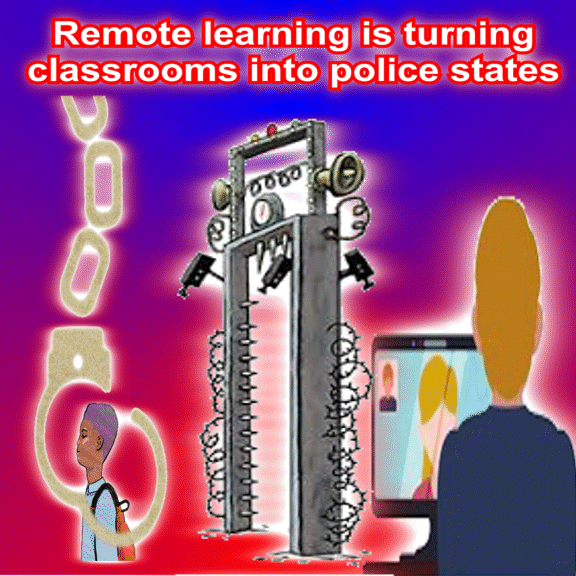Remote learning is turning classrooms into police states | Salon.com
Remote learning is turning classrooms into police states
Virtual classrooms make punishment easier to dole out than connection. It doesn’t have to be this way
Think of your favorite teacher. Whenever I ask people to do this, they usually tell me about a teacher who saw them: the one who took them aside and encouraged them to pursue art or computer science, who helped counsel them through a personal issue, who attended their Quinceañera — who, ultimately, just cared. By connecting with us in meaningful ways, these teachers not only earned a permanent place in our memories, they also engaged, challenged, and inspired us. Today, our nation's 56.6 million elementary and secondary students could all use teachers like this, to help shepherd them through the pandemic and into a better future. But even in the best of times, school structures are more conducive to punitive discipline than meaningful teacher-student relationships, especially in our least-resourced schools. Today, with the challenges of virtual learning and the urgent messaging around "COVID slide" – the learning loss students may have suffered while they were out of school – relationships in schools are under further threat, just when students need them most.
Across the U.S., the pandemic has put a strain on families and children, many of whom continue to suffer from food insecurity, job loss, or the death of loved ones to COVID-19. So as kids begin school this year, they require connection, understanding, and nurturance from their teachers. While positive relationships with significant adult figures like teachers help children cope with trauma, such relationships also facilitate better learning. When students have meaningful relationships with their teachers, they are more likely to engage in class, more likely to feel like they can complete their school work, more likely to grow and CONTINUE READING: Remote learning is turning classrooms into police states | Salon.com


